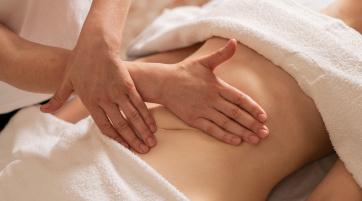

Professional teeth cleaning aims to promote oral hygiene. A dental check-up is part of a routine check-up, although it mainly involves the removal of plaque and other build-up on teeth that contribute to poor gum care and condition. How frequently should professional dental cleaning be done anyway? Let’s find out.
Why Professional Teeth Cleaning?
While brushing and flossing the teeth are important, proper oral hygiene goes beyond the daily routine. These practices are often not sufficient to remove all the plaque and tartar build-up that accumulates on teeth over time. Professional teeth cleaning sessions help thoroughly remove these deposits, ensuring that teeth and gums remain healthy.
Proper oral hygiene is more than brushing and flossing every day. However, these procedures usually do not fully eliminate all the plaque and tartar that develops on teeth. These accumulated deposits are removed during professional teeth cleaning sessions in order to keep teeth and gums’ oral hygiene safe and sound.
Benefits of Regular Teeth Cleaning
Dental problems can be prevented through regular teeth cleaning sessions. They can also be an answer to how to clean yellow teeth. Here are some of the benefits of maintaining a consistent oral care routine.
- Prevention of Dental Issues – Preventing dental complications involves regular teeth cleaning sessions. Plaque deposits and tartar removal greatly reduce the risk of dental caries or tooth decay, gum disease and similar ailments.
- Fresh Breath – The build-up of bacteria in the mouth results in bad breath. Professional teeth cleaning sessions help eliminate the causes of bad breath by removing bacteria.
- Brighter Smile – Stains can accumulate on teeth over time, leading to discolouration. Dental cleaning sessions remove surface stains, resulting in a brighter and more aesthetically pleasing smile.
- Gum Health – Gum disease is a common oral health issue. It leads to gum inflammation and bleeding, which can ultimately lead to tooth loss if left untreated. Regular teeth cleaning helps prevent gum disease by removing the plaque and tartar that can contribute to inflaming the gums.
- Early Detection of Issues – Dental practitioners also do a comprehensive inspection of the mouth in their sessions to clean teeth. This enables the quick diagnosis of small problems, which include cavities, fractured teeth or symptoms of oral cancer.
- Overall Health – There is a direct link between oral health and overall health. Oral health directly depends on overall health. There is a relationship between poor oral hygiene and systemic conditions such as cardiovascular disease, diabetes and respiratory diseases.
What Happens During a Teeth Cleaning Session?
A teeth cleaning session typically follows a standard procedure, though specifics can vary from practitioner to practitioner. The steps include:
- Cleaning – This phase is also called the scaling phase. It involves the removal of tartar and plaque from hard-to-reach mouth areas and interdental spaces. Specialised tools and techniques are used for the purpose.
- Polishing – After cleaning, the teeth are polished to a pristine state. A rotating tool and dental paste are used by the dental professional to achieve a polished finish.
- Fluoride Treatment – To stave off cavities, a fluoride treatment (available as a paste, gel or varnish) may be applied.
How Often Should You Have Teeth Cleaning Sessions?
Dental examinations are carried out annually with the frequency of teeth cleaning sessions depending on the oral health, risk of dental problems, etc., and may be prescribed by a dentist individually. In most cases, dentists will recommend getting your teeth professionally cleaned once every six months. This means that the accumulation of plaque and tartar on the teeth will be removed before it can cause significant damage.
Nevertheless, some people may need more regular cleaning of their teeth. Teeth cleaning should be carried out once every three to four months for those who have had problems related to their gums, holes in the mouth and other oral sicknesses previous to this period. Additionally, people with braces or other orthodontic appliances may find it challenging to clean their teeth thoroughly and may need more frequent professional cleaning sessions.
Drawbacks of Frequent Dental Cleaning
Professional dental cleaning often has disadvantages when done too frequently. Here are the potential disadvantages:
- Tooth Sensitivity – Frequent cleaning of teeth may gradually break the tooth enamel leading to sensitivity of the tooth. The individual may end up with more sensitive teeth.
- Gum Irritation – Excessive cleaning will irritate the gums leading to inflammation, tenderness and bleeding.
- Risk to Dental Work – Dental work like fillings or crowns can be compromised with frequent cleanings. This might require repair or replacement.
- Loss of Natural Microbiome – Unnecessarily over-cleaning causes disturbance in the natural balance of oral bacteria.
Conclusion
While we all know how to clean teeth, dental experts say it might not be sufficient for maintaining proper oral health. Despite the best attempts, these practices alone cannot effectively eliminate the stubborn build-up of plaque and tartar. This is where professional dental cleaning stands as a perfect remedy.
While the benefits of teeth cleaning are far-reaching, the frequency of teeth cleaning is paramount. Typically recommended every six months, over-frequent cleaning can lead to enamel erosion, gum irritation, and teeth sensitivity. Consult with a dentist to chart out a personalised teeth cleaning routine.




